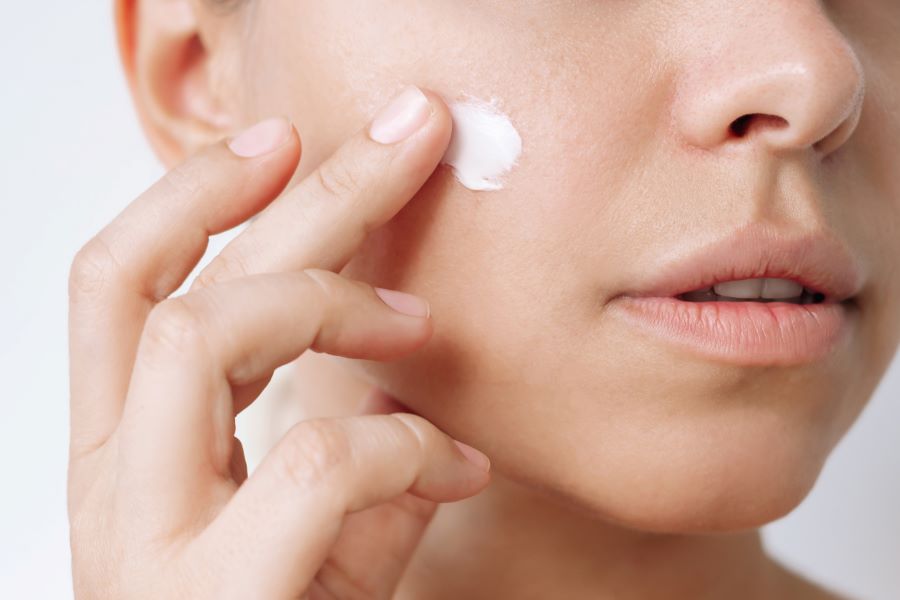Top Vitamin C Wrinkle Care and Anti-Aging Skincare Strategies in the United States 2025
Vitamin C is among the best-supported nutrients for combating skin aging. In 2025, U.S. consumers can use its antioxidant and collagen-stimulating effects to reduce wrinkles and improve firmness. This article explains formulations, combos, and application tips for daily routines.

The Importance of Vitamin C for Wrinkle Prevention and Skin Vitality
Also known as ascorbic acid, Vitamin C is a powerful antioxidant crucial for collagen synthesis—the protein responsible for skin’s structure and elasticity. As we age, collagen production naturally declines, leading to sagging skin and wrinkle formation. Vitamin C aids in promoting collagen production, shields skin cells from harmful free radicals caused by UV exposure and pollution, and brightens your complexion. Consistent use of topical and dietary Vitamin C can thus result in skin that appears firmer, more youthful, and radiant.
Selecting the Right Vitamin C Products for Your Skin Type
When choosing Vitamin C skincare in the United States in 2025, it’s important to take into account your skin type, product stability, and the concentration for optimal wrinkle treatment:
- Stable Vitamin C forms: L-ascorbic acid is the most researched variant, appreciated for its superior absorption and collagen-boosting effects, though it tends to be unstable and susceptible to oxidation.
- Gentle derivatives for sensitive skin: Sodium ascorbyl phosphate, magnesium ascorbyl phosphate, and tetrahexyldecyl ascorbate are more stable and milder options, ideal for those with sensitive or dry skin.
- Packaging considerations: Since Vitamin C deteriorates when exposed to light and air, seek out serums housed in dark or opaque bottles with airtight pumps to preserve potency.
- Concentration levels: The preferred concentration for effectiveness is between 10% and 20%. Concentrations below this range may be ineffective, while higher levels can cause irritation without offering added advantages.
- Formulation types: Cream or lotion-based Vitamin C is generally better suited for dry skin owing to added moisturizers like squalane or jojoba oil; conversely, gel or liquid forms work well for oily or combination skin.
Enhancing Outcomes by Combining Vitamin C with Complementary Ingredients
Vitamin C’s efficacy in anti-aging is enhanced when paired with other skincare actives and nutrients:
- Vitamin E and Ferulic Acid: These antioxidants not only stabilize Vitamin C but also amplify its protection against free radical damage.
- Hyaluronic Acid: It delivers deep hydration, maintaining skin plumpness and softness, thereby minimizing fine lines.
- Niacinamide: This ingredient boosts the skin’s barrier function, promotes an even skin tone, and supports texture improvement.
Choosing products or incorporating routines that combine these ingredients can significantly boost skin rejuvenation and wrinkle reduction.
Best Practices for Applying Vitamin C for Optimal Benefits
To maximize the benefits of Vitamin C products, consider the following guidelines:
- Apply Vitamin C serums on clean, dry skin immediately after cleansing and before moisturizer and sunscreen for the best absorption.
- Use Vitamin C formulations in the morning to shield your skin from daily environmental stressors.
- Introduce Vitamin C treatments gradually, especially if your skin is sensitive, and conduct patch tests before applying on your entire face.
- If incorporating other active ingredients like retinol or alpha hydroxy acids, alternate their use with Vitamin C on different days to lessen irritation risk.
- Keep Vitamin C products stored in cool, dark, and dry environments to avoid degradation and extend their shelf life.
The Role of Nutrition and Oral Supplements in Supporting Skin Health
While topical Vitamin C is essential, maintaining sufficient dietary Vitamin C intake also supports skin health internally. Foods rich in Vitamin C such as citrus fruits, broccoli, red peppers, spinach, kiwis, and strawberries help sustain collagen production and antioxidant defense mechanisms. Oral supplements might be beneficial, particularly for older adults facing natural collagen decline. The combination of oral and topical Vitamin C can provide complementary anti-aging effects.
What You Can Expect With Regular Vitamin C Use
Consistency and patience are critical when adding Vitamin C to your skincare regimen. Research indicates that noticeable improvements in wrinkles, skin brightness, and firmness typically require at least 12 to 16 weeks of regular application. Initial benefits often include improved hydration and a subtle tightening effect, while more pronounced anti-aging results develop gradually over time.
Key Considerations for Using Vitamin C in Anti-Aging Skincare
- Vitamin C products or supplements are not a substitute for sunscreen. It’s essential to apply broad-spectrum sun protection daily since Vitamin C does not block UVA or UVB rays but helps mitigate oxidative stress from sun exposure.
- Some users might experience mild redness or a stinging sensation when first applying Vitamin C serums. Starting with a lower concentration and patch testing can minimize these side effects.
- For personalized skincare approaches, especially if you have specific concerns or conditions, consulting a skincare professional is advisable.
Vitamin C remains a foundational ingredient in the continuously advancing field of anti-aging skincare in the United States. By understanding its scientific benefits and carefully incorporating it into your skincare routine, you can unlock its full potential for wrinkle care and healthier, more youthful-looking skin.
Sources
- “The Benefits of Vitamin C for Your Skin” – WebMD
- “The Best Vitamin C Serums” – The New York Times Wirecutter
- “A Guide to the Skin-Boosting Vitamin That’s Gaining Attention for Wrinkle Care” – Conspical
Disclaimer: Availability and pricing of Vitamin C skincare products vary based on region, retailer, and market trends within the United States. Consumers should check with local vendors prior to purchasing.




